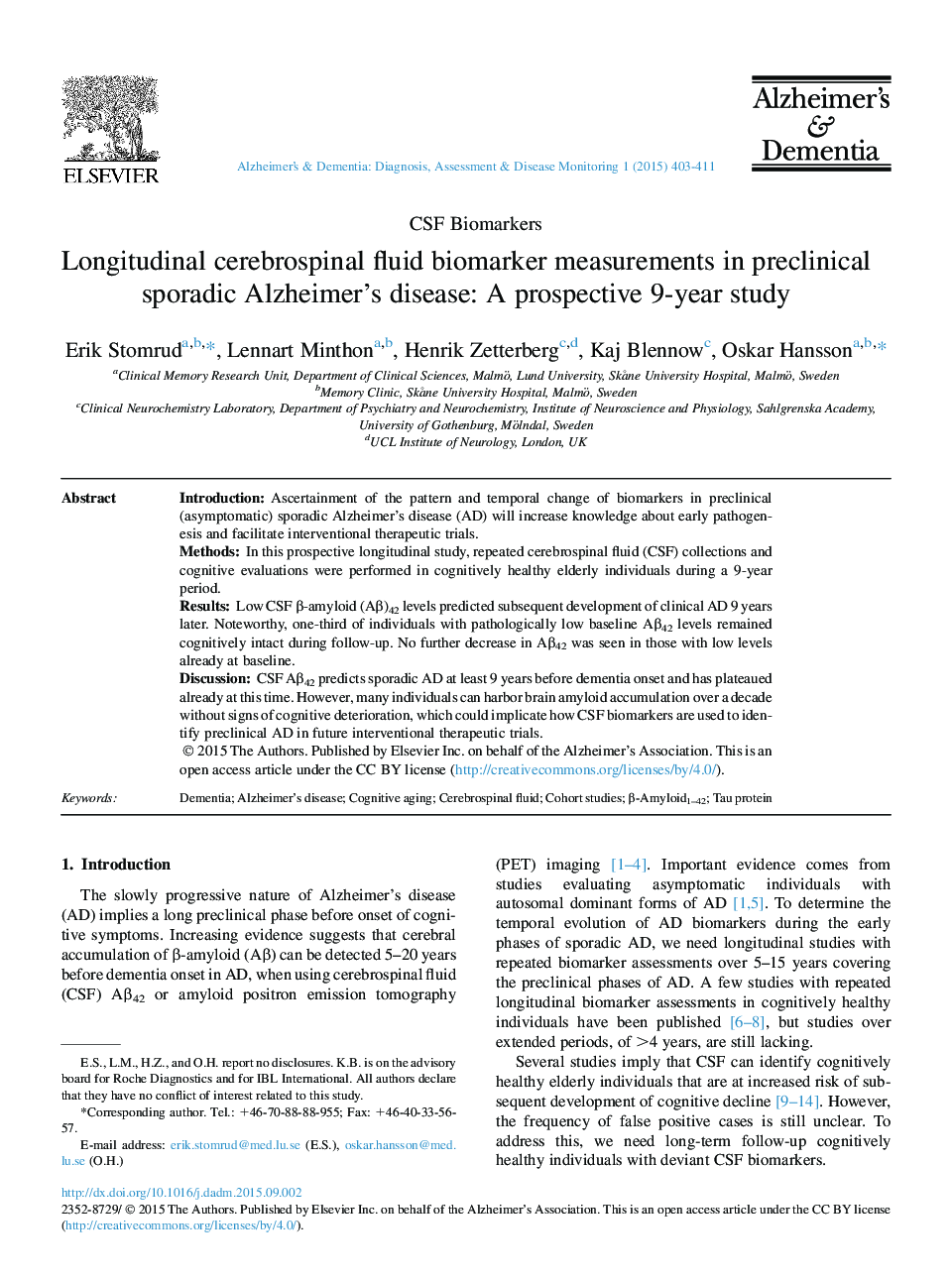| Article ID | Journal | Published Year | Pages | File Type |
|---|---|---|---|---|
| 3031985 | Alzheimer's & Dementia: Diagnosis, Assessment & Disease Monitoring | 2015 | 9 Pages |
IntroductionAscertainment of the pattern and temporal change of biomarkers in preclinical (asymptomatic) sporadic Alzheimer's disease (AD) will increase knowledge about early pathogenesis and facilitate interventional therapeutic trials.MethodsIn this prospective longitudinal study, repeated cerebrospinal fluid (CSF) collections and cognitive evaluations were performed in cognitively healthy elderly individuals during a 9-year period.ResultsLow CSF β-amyloid (Aβ)42 levels predicted subsequent development of clinical AD 9 years later. Noteworthy, one-third of individuals with pathologically low baseline Aβ42 levels remained cognitively intact during follow-up. No further decrease in Aβ42 was seen in those with low levels already at baseline.DiscussionCSF Aβ42 predicts sporadic AD at least 9 years before dementia onset and has plateaued already at this time. However, many individuals can harbor brain amyloid accumulation over a decade without signs of cognitive deterioration, which could implicate how CSF biomarkers are used to identify preclinical AD in future interventional therapeutic trials.
